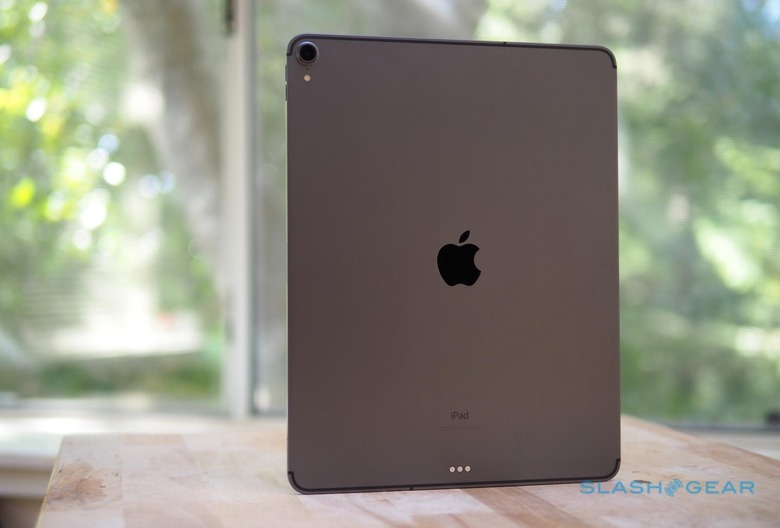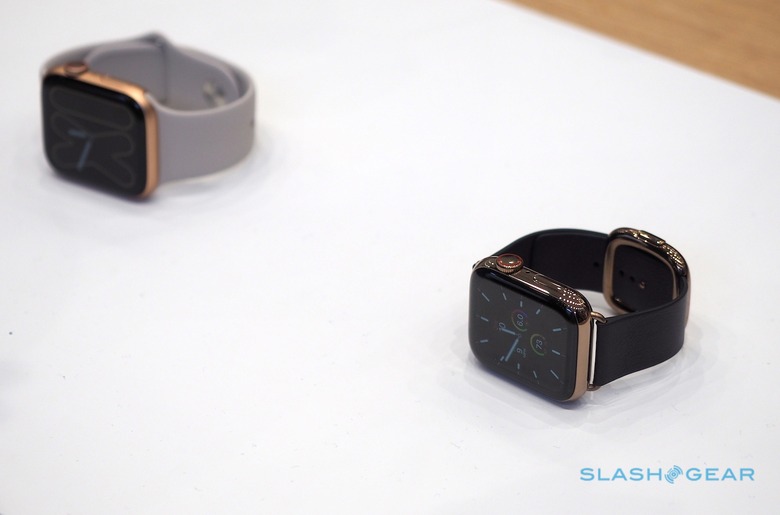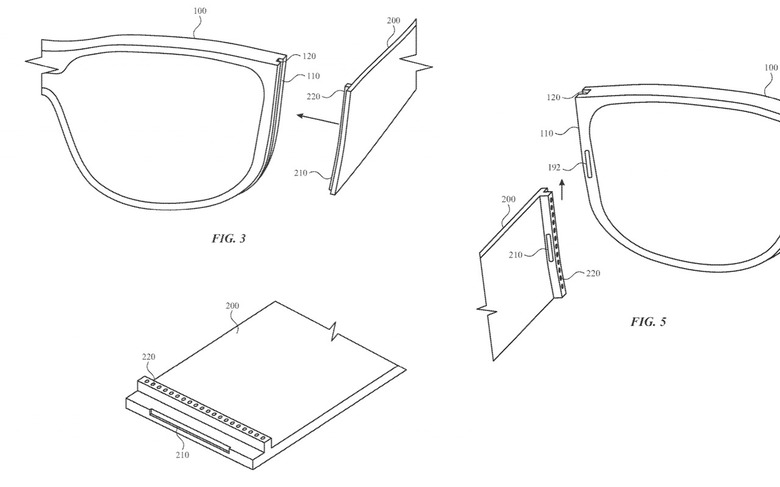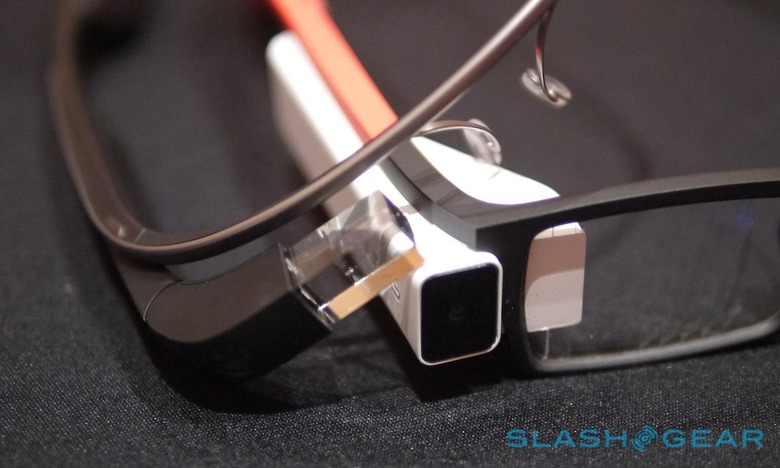Apple Glass Patent Shows Modular System For Future Hero Tech
Apple's prospective plans for a "modular system for head-mounted device" were revealed in a newly-public patent posted to the USPTO. The United States Patent and Trademark Office showed this document with inventors Paul X Wang and Dinesh C Mathew, as first filed in April of the year 2019. This could, possibly, point to part of Apple's design language for their eventual release of a pair of smart glasses, imbued with augmented reality abilities and tipped to be called Apple Glass.
The modular system for head-mounted device via Apple Insider appears as a modular system with customizable components. This head-mounted device (glasses) would have "one or more arm modules to provide features that integrate with other operations of the frame module of the head-mounted device."
Apple's made way for this system – sort of – with the release of the iPad Pro. The iPad Pro has a system called "Smart Connector" that works with devices like the Apple Smart Keyboard, which uses "Smart Connector pins."

This isn't all that unlike what most smartphones are capable of doing with USB ports and accessories – but with the iPad Pro and the keyboard system, we get an early glimpse of what it's like to have removable and replaceable pieces for the full product.
This wouldn't be the first time we've seen modular products appear in the smart phones and smart wearables market. Modular pieces for products haven't done particularly well so far – but they've tried! Look to the BLOCKS modular smartwatch for an example of a system that did not end up working.

Apple was previously rumored to be working on a modular headphones system, and has successfully launched one semi-modular product in the recent past: Apple Watch bands. Though technically those don't count the same way this Apple Glass would – they're not quite as smart.

"The arm modules can be easily exchanged with each other to provide different components and functions at different times," said the patent abstract. "Accordingly, a frame module of a head-mounted device need not include permanent components that provide every function that will later be desired by the user. Instead, the head-mounted device can have expanded and customizable capabilities by the use of one or more arm modules."

That could be neat, but it doesn't seem to follow Apple's history of devices with very few easy-to-find weak points in their hardware. But if Apple does make a pair of glasses, in any form, there might be the requirement to make something that's actually, inherently, quite fragile. We shall see!
